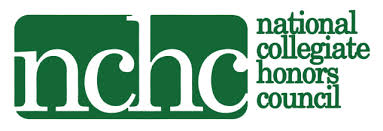Science Fiction and Fantasy as Critical Thought - Truth, Lies and Other Physics
Seminar - UHON 301
Instructor(s): Betsy James
Course Description
In any moment, where do you stand: in reality or imagination? In the molecular world of physics, or in “other physics”: human culture’s world of beliefs, assumptions, stories, and literalized metaphors?
We constantly cross, confuse, and combine those worlds: we treat metaphor as though it were molecular reality. Nowhere is this tendency more outrageously identified and examined—and used to explore and illuminate—than in science fiction, fantasy, magical realism, and horror, known collectively as of Speculative Fiction, or SF. These rapidly-evolving, interdisciplinary “what if?” fiction genres both exploit and question beliefs that we assume to be as “real” and innate as the Periodic Table.
As we learn more about neurolinguistics and how our minds work, SF helps us realize that deeply-held biases like racism, sexism, and anthropocentrism are not givens, but largely artifacts of cultural metaphor. Their controversial nature can make them too hot to handle in straightforward venues, so as the late Ursula K. Le Guin said, “If you’re going to handle lava, it’s a good idea to wear gloves.” SF gives us gloves. Its indirect, playful stories help us look at ourselves, recognize prejudice, and experiment with solutions. In the journey toward a non-hegemonic perspective, SF is a powerful—and popular—vehicle of cultural change.
This course combines a quirky, interdisciplinary lineup of readingand writing from biology, medicine, sociology, and anthropology with a broad range of short stories. You’ll examine the gap between hard science and cultural metaphor, and hunt for cultural projection in both popular media and your own writing. In assignments that combine reading, writing, graphic and other elements, you’ll use SF’s “serious play” to explore various forms of rhetoric: alternative history, grant proposal, explorer’s journal, political screed, etc.
The question most asked about SF is, "How do you make an imaginary world believable?" You’ll answer that question by inventing and critiquing your own and others' worlds, as you ride the interface between the hard-science world of molecules and the dynamic, mercurial world of the imagination.
Texts
PDFs will be provided by instructor
Purchase of 100-page, 9x12 blank notebook
Requirements
In addition to weekly reading and writing, students are required to fill a 100-page, 9x12 blank notebook in any way they wish.About the Instructor(s): Betsy James
Betsy James is the writer-illustrator of 17 books and a nominee for the 2017 World Fantasy Award. Visit her website at www.betsyjames.com



Social Media
For news, information, prizes and more fun stuff follow us on our social media!
Honors College Resources